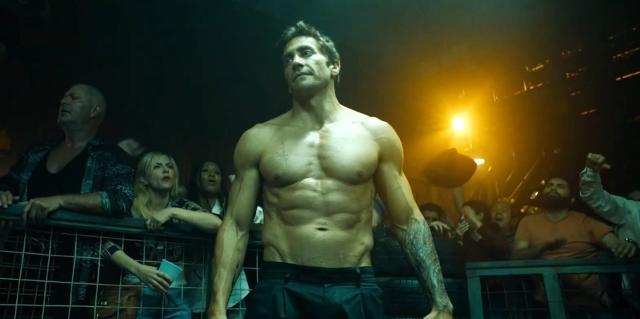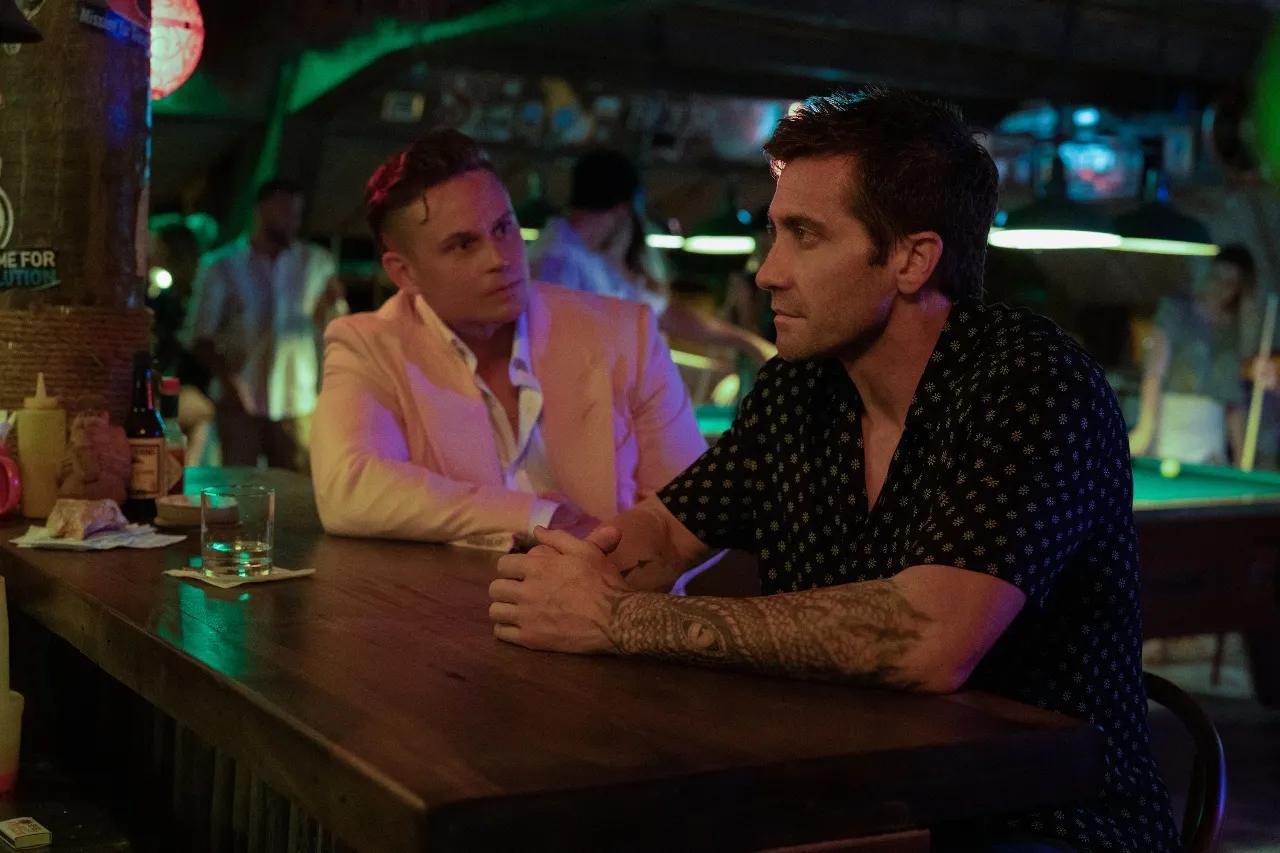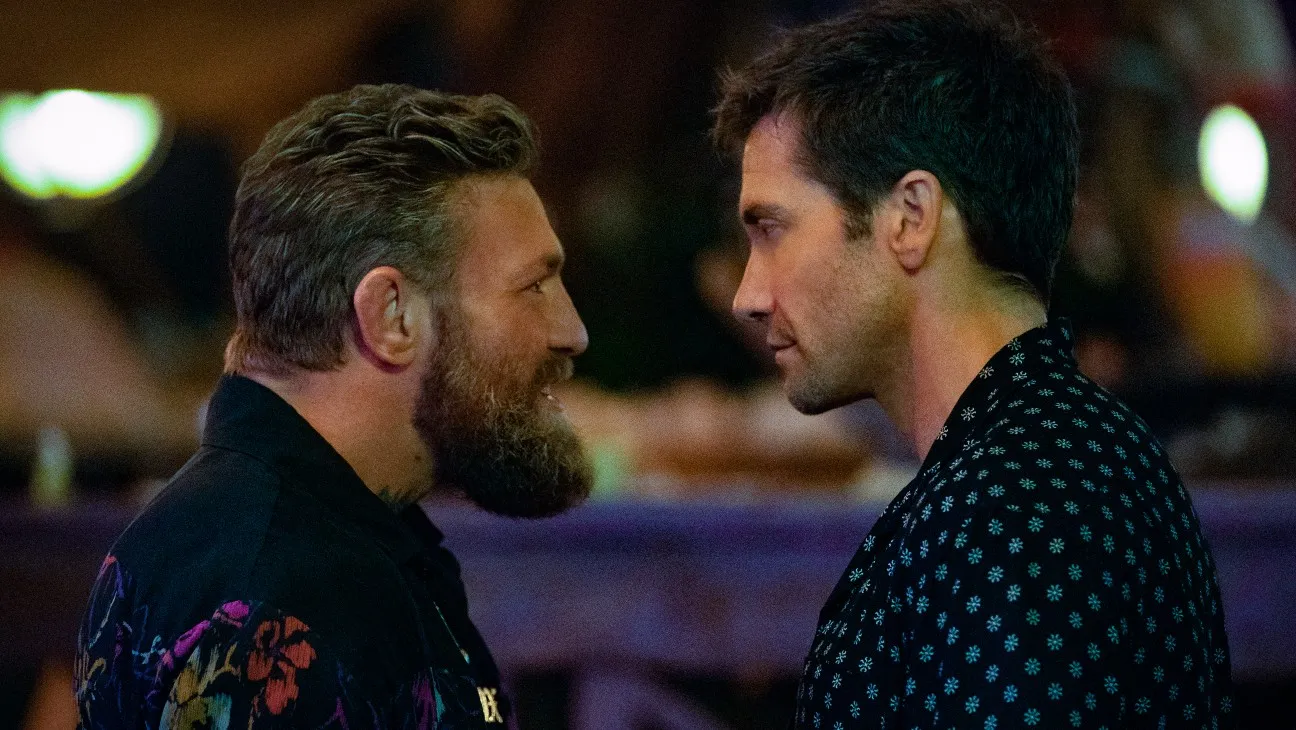Remakes have a tough hill to climb, especially if the original or prior movie is a cultural touchstone. Too many falter by trying to please old and new fans while missing what made the original so special. That’s especially true of Rowdy Herrington’s 1989 Road House, the Beauty and the Beast of action films.
There was never any chance that Doug Liman’s remake of Road House would be a patch on the original, a movie that the critic Sean Burns has called “the best movie ever made by someone named Rowdy.” But Liman has wisely done something refreshing: he made his own movie bereft of nostalgia pit stops. Don’t get me wrong, Andrew Bagarozzi and Charles Mondry’s script has Easter eggs, but there are actual easter eggs sprinkled throughout without a neon sign pointing them out.

Liman did take one cue from Herrington’s Road House. The original was a product of its time, impossible to replicate. Liman’s remake is just that: a movie wholly of the modern era, filled with all the trends, good and bad, and feels like a movie cut from the cloth of the 21st century. Road House is sometimes an absolute blast; when it isn’t, it’s still amusing.
I will admit to being skeptical going into it. At the outset, making Dalton (Jake Gyllenhaal) an ex-MMA fighter follows a trend I despise: everyone must be ripped to be a badass. With Conor McGregor as Knox, the head henchman de force, it seemed that Road House had lost much of its charm. But despite MacGreggor taking me out of the movie, Gyllenhaal’s Dalton is a fresh take and buoys the film even when it starts to drag.
Gyllenhaal plays Elwood Dalton with an impish, zen-like attitude. Before a fight, he asks if everyone has insurance, followed by how far of a drive it is to the nearest hospital. He projects a laconic charm, like a buff Dean Martin; he’s calm and expects everyone else to be too. Gyllenhaal’s permanent smirk gives Dalton a kind of mischievous edge. For example, when he shows up to a meeting without the money and tells the henchmen who pat him down, “I’ll just tell them you took it.”
Unlike the legacy sequel currently in theaters, Liman’s Road House has an irreverent tone for itself and the original. However, it does fall into the trap that many modern movies do, which is to try to be self-aware by being meta. Upon arriving at the Glass Keys, he meets a young Black girl, Charlie (Hannah Lanier). The two have sweet chemistry, and ordinarily precocious kids annoy me, but Lanier is older than these characters usually are, and she exudes a genuine exuberance. If only the dialogue didn’t go on about how Dalton’s job sounds like something out of a Western.
Bagarozzi and Mondry’s script gets too bogged down with modern tropes. Dalton’s “tragic past,” having characters expound on what kind of genre the present situation, spending too long on a mystery that isn’t all that complicated or interesting, and trying to be gritty. But when they were not doing all that, I smiled and clapped like an idiot.
Part of my love for the new Road House comes from Arturo Castro’s Moe. Moe is one of my favorite longstanding tropes: the henchman whose heart isn’t in it. During a bar fight, he passes Dalton and can’t help but wave excitedly as they pass. Castro brings a light touch to Moe, giving him comic relief but not so much that he feels like a cartoon. In Castro’s hands, we’re given a reluctant henchman who’d rather hang with Dalton than fight him.
Liman’s Road House also lacks a gaze of any kind. Like most four-quadrant movies these days, it lacks any hint of ogling, replacing the charming sleaze of the original with more of a focus on Dalton’s haunted past. When I say charming sleaze, I mean that Herignton and his DP Dean Cudney understood that sexiness would be found in both Julie Michael’s curves and Sam Elliot putting his hair into a ponytail. It was a gleeful bisexual horniness that gave the original much of its charm in that sexiness existed everywhere.

The lack of a Julie Michaels hurts the new version but only barely because while we may not have a Michaels or Elliot, we do have Daniela Melchior as Ellie, the world-weary doctor. Melchoir has a wonderfully frazzled voice that hints at long nights of drinking and hard days of yelling at co-workers. It fits nicely with her Ellie, a woman who seems tailor-made for Dalton if he could ever settle down.
Melchoir and Gyllenhaal have a smoldering intensity in each other, and while the new Road House is more sexless, there is a palpable sense of desire between the two. Like most modern movies, the sex scene is implied instead of shown. The romance has a more mature bittersweet tint that gives the relationship a distinct flavor. It may not be as fun, but in a way, it’s more mature in how the two approach and connect.
The dialogue has a smart-alec tone that I admire, and the characters thankfully do not stop to point it out. When Frankie (Jessica Williams)tries to hire Dalton and give him her number, he declines. He doesn’t have a phone. “I’ll write in on paper, like our ancestors did.”
But what ignites the spark of Road House is the swing-for-the-fences visuals Liman and Henry Braham take. The colors are washed out, the night scenes bathed in a cold orange and blue light, and the day scenes feel at once stark and cold. Again, it’s a modern trend, but in Braham’s hands, the visuals have a kind of wistful charm.
Yet, it’s nothing compared to how Liman and Braham film the action. Thanks to Doc Crotzer’s editing, they use a digital technique that involves cutting out frames to speed up the action, CGI, and wild and stark cuts. I’ve seen people describe some of the action scenes as something out of a video game, and I can see it, especially when we switch to a first-person point of view.
But it’s important to remember the David Mamet quote, ”The difference is all the difference.” While these moments may look like a video game, they are, without a doubt, cinematic. Liman, Braham, and Crotzer make these impacts visceral, making the impact of the hits palpable. They understand that the language used by video games and cinema use many of the same phrases, but how they are used matters.
These moments don’t always work, but there’s an audaciousness to them that is often lacking in remakes, so I have to give the film its due. It’s not an unheard-of way to do action scenes; anyone who has watched the South Korean action films of Ma Dong-seok has seen this method, as it’s used to sell his infamous haymakers.
The fact that Liman is so comfortable making Road House his movie is what makes it so refreshing even when it doesn’t work. The moments that don’t work often involve McGregor’s Knox. Like the Tasmanian Devil, he’s a character who seems tonally out of step with the rest of the world. Chaotic, psychopathic, and incapable of taking a breath, Knox feels like an Irish Popeye who’s somehow wandered into the real world.

McGreggor never pulled me out of the movie, and on re-watches, I’ve grown increasingly accustomed to him. However, the post-credits scene and his almost supernatural invincibility never quite gel with the rest of Road House. More than anything, he exacerbates the overall problem of Road House, which is how Liman struggles to maintain a coherent tone.
I’ve seen Road House a few times now, and I still hate the ending each and every time. But again, it’s a product of our time with its obsession with individualism. It’s ironic that the movie from the 80s had a more collectivist spirit than the modern one, which finds new and interesting ways to achieve diversity yet still feels less like a small town coming together than the original. That’s because, for Liman, it’s not Jasper, Missouri; it’s the Glass Keys, and the only one doing the fighting is Dalton because he’s the only one who knows how. The result is that say what you will about Herrington’s Road House, it understood one man couldn’t do it alone, and in the end, he found a home.
Liman’s Road House is overtly cynical. The hero doesn’t ride off into the sunset or find a new home so much as he’s asked to leave before he’s forced to leave. It’s a narrative kernel I haven’t been able to square with, and mars is an otherwise enjoyable movie.
Still, Liman’s Road House lacks the original’s strangeness and surreal poetic beauty. Yet, that’s okay because he strives to make his own version, which, despite any hiccups, refuses to yield to the temptation of nostalgia. But like the original, it needed more Julie Michaels, but whatever, nobody’s perfect.
Images courtesy of Amazon MGM Studios
Have strong thoughts about this piece you need to share? Or maybe there’s something else on your mind you’re wanting to talk about with fellow Fandomentals? Head on over to our Community server to join in the conversation!

